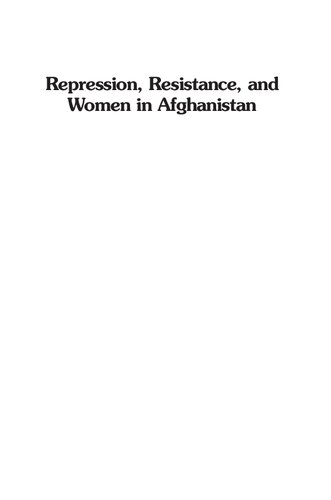

Most ebook files are in PDF format, so you can easily read them using various software such as Foxit Reader or directly on the Google Chrome browser.
Some ebook files are released by publishers in other formats such as .awz, .mobi, .epub, .fb2, etc. You may need to install specific software to read these formats on mobile/PC, such as Calibre.
Please read the tutorial at this link: https://ebookbell.com/faq
We offer FREE conversion to the popular formats you request; however, this may take some time. Therefore, right after payment, please email us, and we will try to provide the service as quickly as possible.
For some exceptional file formats or broken links (if any), please refrain from opening any disputes. Instead, email us first, and we will try to assist within a maximum of 6 hours.
EbookBell Team

5.0
28 reviewsAfghan women have faced an exhaustive struggle in the battle to change their status and improve their situation. Emadi takes a long look at the role of development and modernization policies implemented by the state in the pre- and post-Soviet eras, under the Taliban, and beyond. He finds that such policies have failed to bring about much- needed change and improvement for women. Modernization strategies benefited only a small segment of urban women and left the plight of rural women unchanged. Although a small segment of middle- and upper-class women organized themselves and fought to bring about changes in their status and to end gender inequality, their efforts alone did not meet with much success.
Islamic orthodoxy and orthopraxy in the Taliban era restricted women's freedom of movement, access to education, and medical care. Using personal accounts not readily available to researchers or scholars, Emadi explores the diverse factors that contributed to women's oppression both at home and in society. This study provides a detailed analysis of state policies toward women's emancipation within the context of a traditional Islamic society. It chronicles the course of the women's movement and women's organizations still active in the political arena and puts forth an alternative plan to involve women in the reconstruction process in both urban and rural areas.